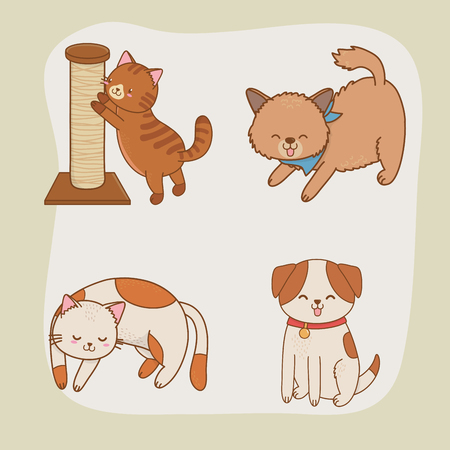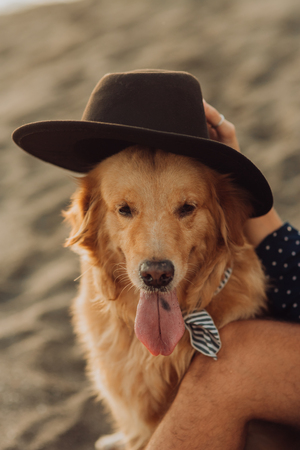1. Common Signs of Illness in Small Pets
Recognizing when your small pet is feeling unwell can be challenging, as they often hide their symptoms until the illness becomes severe. However, paying close attention to subtle and obvious changes in their behavior, appetite, or appearance can help you catch health issues early.
Changes in Appetite
A sudden increase or decrease in food or water intake can indicate a health problem. If your pet refuses to eat for more than 24 hours, it may be a sign of an underlying issue that needs veterinary attention.
Behavioral Changes
Small pets are creatures of habit, so any noticeable shift in their usual behavior could signal illness. Watch for signs like:
- Lethargy or unusual tiredness
- Aggression or irritability
- Hiding more often than usual
- Excessive grooming or scratching
Physical Appearance and Mobility Issues
Changes in how your pet looks or moves can also be warning signs. Check for:
| Symptom | Possible Concern |
|---|---|
| Weight loss or gain | Metabolic disorders, dental problems |
| Runny nose or eyes | Respiratory infection |
| Unkempt fur or bald spots | Skin infections, parasites |
| Limping or difficulty moving | Injury, arthritis |
Digestive and Respiratory Symptoms
If you notice digestive issues such as diarrhea, constipation, or bloating, it could indicate gastrointestinal distress. Likewise, labored breathing, wheezing, or frequent sneezing may suggest respiratory infections that require immediate care.
When to Seek Veterinary Care
If your pet displays any of these symptoms persistently or if their condition worsens rapidly, its best to consult a veterinarian as soon as possible. Early detection and treatment can make a significant difference in their recovery and overall well-being.
2. When to Seek Immediate Veterinary Care
Recognizing when your small pet needs urgent medical attention can make a life-saving difference. Some symptoms indicate a critical emergency that requires immediate veterinary care. If you notice any of the following signs, contact your veterinarian or an emergency animal clinic right away.
Critical Symptoms Requiring Immediate Attention
Certain health issues can escalate quickly and become life-threatening. Here are some warning signs that your pet needs urgent medical care:
| Symptom | Description |
|---|---|
| Difficulty Breathing | If your pet is gasping for air, breathing heavily, or has blue or pale gums, they may be experiencing respiratory distress. |
| Seizures | Twitching, convulsions, or uncontrolled movements could indicate a neurological issue that requires immediate attention. |
| Severe Lethargy or Unresponsiveness | If your pet is extremely weak, unresponsive, or unable to move, this could signal a serious underlying condition. |
| Uncontrolled Bleeding | Persistent bleeding from wounds, nose, mouth, or other areas should be treated as an emergency. |
| Bloating or Swollen Abdomen | A distended belly, especially if accompanied by discomfort or restlessness, could indicate a serious internal issue. |
| Dramatic Changes in Behavior | If your normally active pet suddenly becomes disoriented, aggressive, or excessively withdrawn, seek veterinary advice immediately. |
| Difficulties with Urination or Defecation | If your pet is straining to urinate or defecate without success, it could be a sign of a dangerous blockage. |
What to Do in an Emergency
If your pet exhibits any of these symptoms:
- Stay calm: Panicking can make the situation worse for both you and your pet.
- Safely transport your pet: Use a secure carrier or soft towel to keep them comfortable while heading to the vet.
- Avoid home remedies: Time is critical—do not attempt treatments at home unless instructed by a veterinarian.
- Call ahead: Contact your vet or an emergency clinic so they can prepare for your arrival.
The Importance of Quick Action
The faster you respond to an emergency situation, the better the chances of a positive outcome for your pet. Always trust your instincts—if something feels off about your pets condition, its best to seek professional help immediately. Small pets can deteriorate rapidly, so acting quickly can save their life.

3. Preventative Care and Early Detection
Keeping your small pet healthy isn’t just about treating illnesses when they arise—it’s about preventing them in the first place. Routine check-ups, a proper diet, and regular monitoring can go a long way in ensuring your pet stays happy and healthy. Here’s how you can take proactive steps to prevent illnesses and catch problems early.
Routine Veterinary Check-Ups
Regular vet visits are essential for detecting health issues before they become serious. Even if your pet seems perfectly fine, a professional exam can uncover hidden problems. Most small pets should have at least an annual check-up, but some may need more frequent visits based on their species and age.
| Pet Type | Recommended Check-Up Frequency |
|---|---|
| Rabbits | Once or twice a year |
| Guinea Pigs | At least once a year |
| Hamsters & Gerbils | If signs of illness appear |
| Ferrets | Twice a year |
| Birds | Annually or as needed |
A Proper Diet for Long-Term Health
The right nutrition plays a key role in preventing disease. Small pets have specific dietary needs that must be met to keep them healthy. Feeding them an improper diet can lead to obesity, malnutrition, or digestive issues.
Nutritional Needs by Pet Type:
- Rabbits: High-fiber hay, fresh vegetables, and limited pellets.
- Guinea Pigs: Vitamin C-rich foods, hay, and fresh veggies.
- Hamsters & Gerbils: A mix of seeds, grains, and fresh produce.
- Ferrets: High-protein meat-based diets (avoid carbs).
- Birds: A balanced diet of pellets, seeds, fruits, and vegetables.
The Importance of Regular Monitoring
Your pet may not show obvious signs of illness until a condition has progressed. That’s why daily observation is crucial for early detection. Keep an eye on changes in behavior, appetite, activity level, and bathroom habits.
Warning Signs to Watch For:
- Lack of Appetite: Refusing food for more than a day can indicate illness.
- Lethargy: If your normally active pet becomes sluggish or weak, it’s time to investigate.
- Poor Coat Condition: Fur loss, dullness, or excessive scratching may signal health issues.
- Difficult Breathing: Wheezing or labored breathing should never be ignored.
- Sneezing or Discharge: Watery eyes or nasal discharge can indicate respiratory infections.
- Bowel Changes: Diarrhea or constipation may point to digestive problems.
- Lumps or Swelling: Any unusual growths should be checked by a vet immediately.
A Healthy Pet Starts with Prevention
Caring for your small pet means staying ahead of potential health issues. By scheduling regular vet visits, providing a well-balanced diet, and monitoring daily behaviors, you can help prevent many common illnesses before they become serious problems. Being proactive is the best way to ensure your furry (or feathered) friend enjoys a long and happy life!
4. Common Health Issues in Small Pets
Small pets, such as rabbits, guinea pigs, hamsters, and ferrets, are prone to certain health issues. Recognizing these common problems early can help ensure your pet gets the proper care they need. Below are some of the most frequent medical conditions affecting small pets.
Respiratory Infections
Respiratory infections are a common concern, especially for rodents and rabbits. These infections can be caused by bacteria, viruses, or environmental factors like poor ventilation and high humidity.
Signs of Respiratory Infections:
- Frequent sneezing
- Nasal discharge
- Labored breathing or wheezing
- Lethargy and loss of appetite
Prevention Tips:
- Keep their habitat clean and well-ventilated
- Avoid exposure to cigarette smoke or strong chemicals
- Ensure a balanced diet to support a strong immune system
Dental Diseases
Dental health is critical for small pets, especially those with continuously growing teeth, like rabbits and guinea pigs. Overgrown teeth can cause pain, difficulty eating, and other serious complications.
Common Dental Problems:
| Disease | Symptoms |
|---|---|
| Overgrown Teeth | Drooling, difficulty eating, weight loss |
| Mouth Sores | Pain when eating, decreased appetite |
| Tooth Abscesses | Swelling around the jaw, pus discharge |
How to Prevent Dental Issues:
- Provide chew toys and hay to help naturally wear down teeth
- Schedule regular dental check-ups with a vet
- Avoid feeding sugary or soft foods that don’t promote chewing
Gastrointestinal Problems
The digestive system of small pets is delicate and can be easily disrupted by diet changes, stress, or illness. Gastrointestinal (GI) issues can become life-threatening if not treated promptly.
Main GI Disorders:
| Disease | Description |
|---|---|
| Bloat (Gastric Stasis) | The stomach slows down or stops moving food properly, leading to gas buildup. |
| Diarrhea | An imbalance in gut bacteria that can lead to dehydration. |
| Ileus (Gut Stasis) | A condition where the intestines stop functioning properly due to stress or diet issues. |
Warning Signs of GI Problems:
- Lack of appetite or refusal to eat
- No fecal pellets or diarrhea
- A bloated or painful abdomen
- Lethargy and signs of discomfort like teeth grinding
Tips for a Healthy Digestive System:
- Avoid sudden changes in diet; introduce new foods gradually.
- Ensure they have constant access to fresh hay and water.
- If you notice signs of GI distress, seek veterinary care immediately.
If your small pet shows any symptoms of these common health issues, it’s important to consult a veterinarian as soon as possible. Early intervention can prevent minor issues from becoming serious medical emergencies.
5. What to Expect During a Vet Visit
Taking your small pet to the vet can feel overwhelming, but being prepared can make the experience smoother for both you and your furry friend. Heres what you can expect during a veterinary visit and how to prepare.
Information to Bring
Before heading to the vet, gather important details about your pets health and behavior. Having this information ready will help the veterinarian make an accurate diagnosis.
| Category | Details to Provide |
|---|---|
| Medical History | Previous illnesses, surgeries, vaccinations, and any ongoing treatments |
| Diet | Type of food, feeding schedule, recent changes in appetite |
| Symptoms | A list of unusual behaviors or physical signs (e.g., lethargy, weight loss) |
| Lifestyle | Cage setup, environment, exercise routine, interactions with other pets |
| Meds & Supplements | Name and dosage of any medications or supplements your pet is taking |
The Veterinary Examination Process
Your vet will typically follow a step-by-step process to assess your pet’s health. Heres what usually happens:
- Initial Discussion: The vet will ask about your pet’s history and symptoms.
- Physical Examination: Checking weight, heart rate, breathing, eyes, ears, skin, and overall condition.
- Add-on Tests: If needed, blood tests, X-rays, or stool samples may be requested for further evaluation.
- Treatment Plan: Based on findings, the vet will recommend treatment options such as medication or lifestyle adjustments.
- Follow-up Care: Some conditions require additional check-ups or long-term care planning.
Questions to Ask Your Vet
A vet visit is a great opportunity to get expert advice. Consider asking these questions:
- “What could be causing these symptoms?”
- “Are there any immediate treatments my pet needs?”
- “How can I improve my pet’s diet and environment?”
- “What warning signs should I look for at home?”
- “Do I need to schedule a follow-up visit?”
Mental Preparation for You and Your Pet
Your small pet may feel stressed when visiting the vet. To keep them calm:
- Create a Comfortable Carrier: Use a familiar blanket or hideout inside their carrier.
- Avoid Sudden Movements: Handle them gently and minimize loud noises during transport.
- Praise & Reward: After the visit, offer their favorite treat or extra cuddle time.
A well-prepared vet visit ensures your small pet gets the best care possible. By bringing key information and asking the right questions, youll help your vet diagnose issues early and keep your furry friend happy and healthy!


